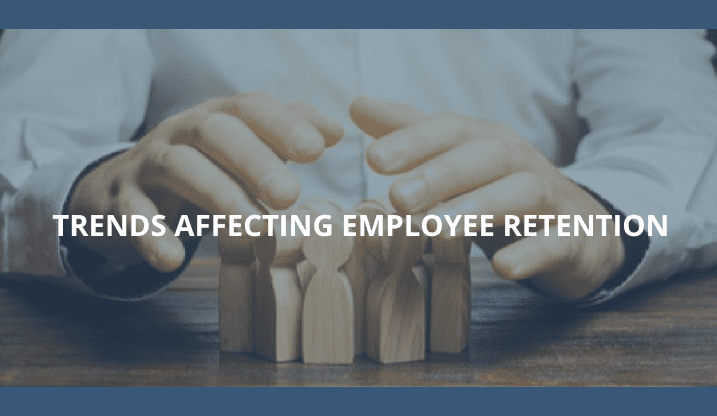While there are a lot of components that go into employee retention, one of the most intriguing finds from last year’s Talent Trends survey is how employees’ sense of belonging can impact retention and productivity. It seems like a no-brainer when you think about it – feeling connected to an organization and enjoying quality relationships on the job can make an employee feel like an integral part of the group, making them more likely to stay with your company. And our Talent Trends Survey results show leaders have started taking note of how employee belonging is vital for employee retention.
Remote work’s impact on employee connection
When Covid hit and turned the business world (and the world at large) on its head, many companies turned to a remote or hybrid work model, and like Omnia, many of them have continued with that model. WFH offers many advantages: less overhead and increased productivity for employers (Forbes) and less commuting and more flexibility for employees, among other benefits. But a big drawback can be the lack of human connection. Missing the sense of camaraderie from watercooler discussions, passing each other in the hall, and impromptu lunch outings among colleagues can feel demotivating for many employees. This can be especially challenging for employees who are socially driven and thrive when they are able to interact with others regularly. And even though more reserved people may have an easier time flying solo on the job, they often still appreciate hearing the buzz of chatter in the office and seeing a friendly face, and they can miss the sense of connection those aspects of in-person work offer.
Real-world examples
Cultivating a sense of belonging within your company doesn’t have to be elaborate, but it does have to be intentional, especially when employees are working remotely some or all of the time. At Omnia, we hold quarterly meetings in person to both update employees about everything happening in our company and to give opportunities for us to reconnect and catch up with each other, often in fun, different locations. In addition to these meetings, we have a holiday party at the end of the year, and we are excited to start participating in volunteer events where local employees can work together on projects that help our community.
Employee initiative
But building solidarity doesn’t just happen a few times a year. And while an organization’s leadership must set the groundwork for creating the sense of belonging that retains employees, planning activities doesn’t always have to come from the top. When leadership encourages connection, it inspires employees to take action themselves to grow internal relationships. Recently, an Omnia colleague began hosting a monthly 30-minute Teams meeting so whoever wants to join can catch up with their coworkers and discuss what’s going on in everyone’s lives. It’s a fun opportunity to see others during the workday like we would if we were in the office. Another colleague has created a book club that meets virtually every month after work. This is another chance for people to connect around a shared activity that grows the sense of belonging within the organization.
Know your employees
It’s important to note that these meetings and events aren’t mandatory and growing employee connections can’t be forced. Some people need more time than others to build rapport and feel at ease interacting with their colleagues on a personal level. That’s why knowing your employees and how much – or how little – interaction motivates them is critical.
On the Omnia behavioral assessment, someone who is driven by having a great deal of interaction with others has a tall column 3, while those who prefer solitary work and do not need as much ongoing interaction display a tall column 4. Requiring an employee with a very tall column 4 to attend frequent social events – especially if they are a new employee who does not know many people within the organization yet – might be just as demoralizing as not allowing a column 3 employee to participate in any social opportunities at all. Instead, an introverted employee might feel more connection by having one-on-one conversations with a colleague or by meeting with just a few other people at a time. Feeling understood in and of itself can go a long way in making employees feel connected to your organization.
What trends do you see affecting employee retention in your organization or industry? Add your voice to the discussion by taking our 2nd Annual Talent Trends survey (Click Here) by December 31, 2022.























